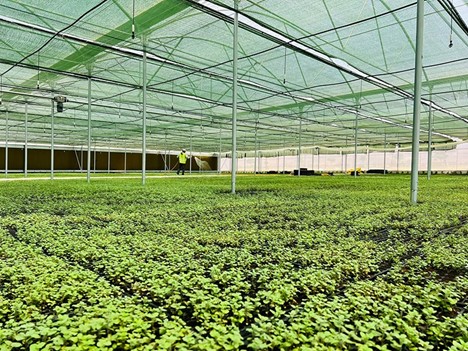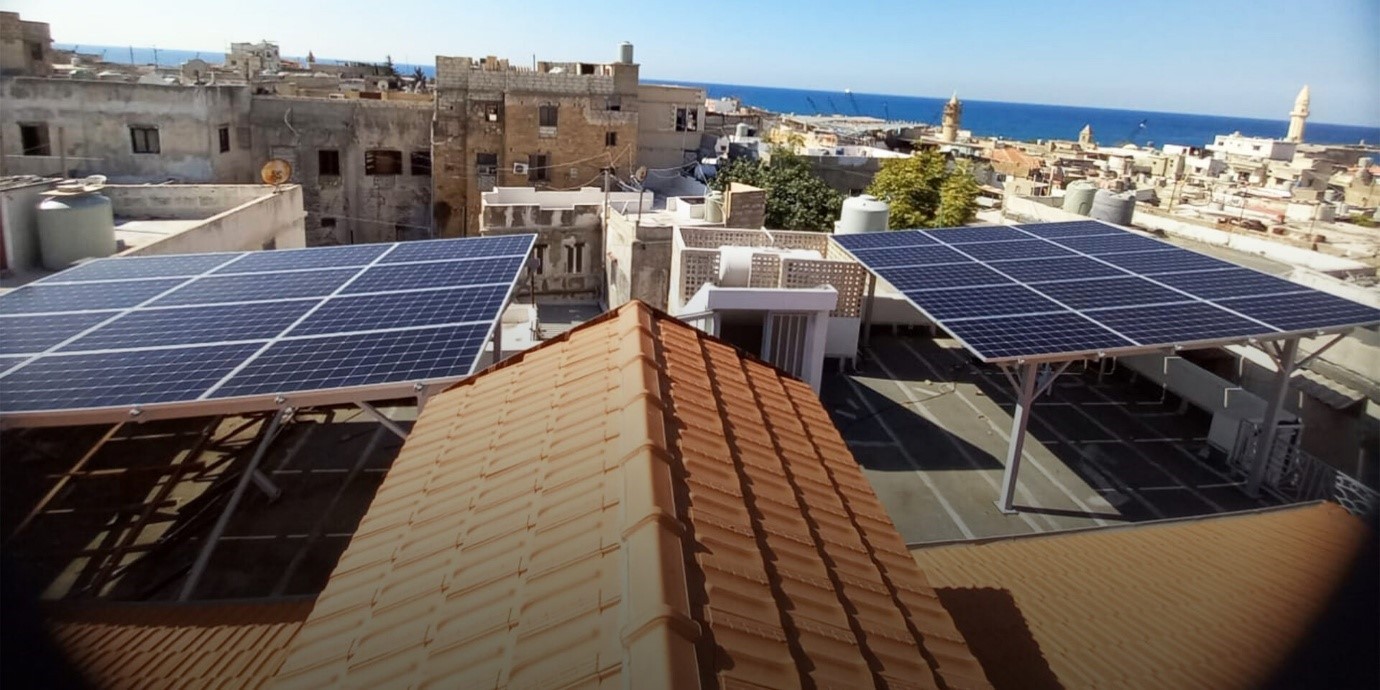The small farming community of Majdel Aanjar in northeastern Lebanon’s Beqaa Valley — equidistant from Beirut and Damascus, the respective capitals of Lebanon and Syria — suffered from a severe water shortage for 11 years. Not because of a drought, but because of a lack of sufficient electric power to pump the water to reach homes and farms.
This threatened the health and well-being of the town’s inhabitants as well as the high-yielding agricultural region’s fertility, rich as it is with flavorful apples, tomatoes, and grape vineyards. The desperate lack of water also created the potential for escalating violence between communities that had been thrust together as a result of regional conflicts. In the wake of Syria’s devastating civil war, Majdel Aanjar more than doubled in size, adding 32,000 Syrian refugees to its pre-war population of 25,000 native Lebanese.
The absorption of so many refugees is just one factor that hindered Majdel Aanjar’s ability to deliver essential services — such as electricity, water, and wastewater management — to its residents. And challenges like the water shortage, prolonged state-electricity outages, and the exponential increase in population led to a rise in sectarian tensions in Majdel Aaanjar, making it one of the most vulnerable towns in the Beqaa.
This pattern has recurred throughout Lebanon — particularly in the last half century — in which tensions have too often escalated into bloodshed. To help reduce such simmering discord, USAID launched the Community Support Program (CSP) in Lebanon. Implemented by Chemonics, CSP was an initiative specifically created to improve the delivery of electricity, water, waste-management and other services that can enhance economic opportunities, improve lives, and reduce the tensions that contribute to conflict and violence.
Through CSP, Chemonics pioneered a program called Solar Solutions to Counter the Collapse of Essential Services. That program oversaw a nationwide effort to harvest more affordable solar power in an attempt to normalize life in Lebanon. USAID conceived of the CSP as a solution to ease some of Lebanon’s tensions, many rising from a confluence of crises. Those included the global pandemic; an economic meltdown that saw the near collapse of the Lebanese lira; a crippling fuel crisis — even more noteworthy because many Lebanese rely on fuel-powered generators as a workaround for the lack of state-sourced power; a devastating port blast in Beirut, which killed more than 200, injured more than 7,000, and left an estimated 300,000 homeless; and the after-effects of absorbing at least 1 million refugees from neighboring Syria, which equates to almost 20% of the national population of 6.8 million. In the wake of those grave challenges, residents led ongoing protests and roadblocks to demonstrate their concern with the near collapse of essential services. Fuel shortages led to numerous incidents of physical violence at gas stations, some of which led to armed confrontations, and even death.
CSP’s Solar Solutions effort, using the latest solar technologies to keep essential services running in several sectors, implemented 22 solar-related interventions in Lebanon, including agriculture and water pumping (including an innovative solar-powered mobile welding machine, used to repair irrigation pipes that provide water to farmers fields), household energy, street lighting, and solid-waste management. One of these 22 solar-powered implementations was in Majdel Aanjar and involved upgrading the water-pumping systems serving the town, giving the municipality much-needed water, as well as, importantly, easing tensions. When the project launched, Mahmoud Aajaj, a resident of Majdel Aanjar, noted, “This project is addressing a crucial need. Without this intervention, we wouldn’t be able to provide a sustainable source of water to the village.”

Lebanon had not previously used solar solutions en masse. Historically fuel had not been a major concern for residents. Before the economic crisis gutted the national reserves, Lebanon used to subsidize fuel, so that residents paid the lowest amount per capita for fuel in the world. But solar power is one resource that is in plentiful supply in Lebanon. And in the Beqaa Valley, that meant installing solar photovoltaic modules to power water pumps to get water to residents.
Water flows again in Majdel Aanjar. And for that, local residents thank this program that harnesses the power of the sun. If solar can be used here — where there really are no other resources — it can really be used anywhere.
Featured image caption: Solar panels installed in Old Saida ensure power supply to the streetlights in the town’s main paths and entrances.



